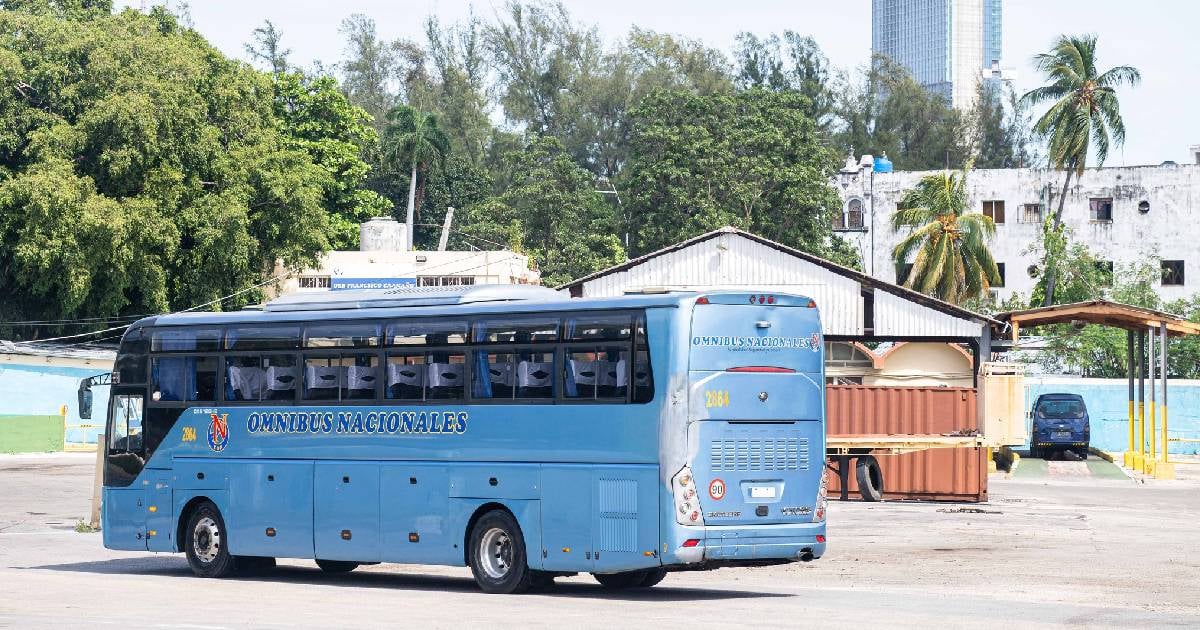Amidst circulating reports about a potential halt in interprovincial transportation, Cuba's Minister of Transportation, Eduardo Rodríguez Dávila, has refuted these claims, asserting that services will continue normally across the nation. In a Facebook post, where he frequently shares updates, Rodríguez Dávila emphasized that although operational challenges exist, services have not been canceled due to the country's electricity generation shortfall.
He highlighted that services by the Empresa de Ómnibus Nacionales are ongoing without disruption and that the Guantánamo-Havana train has departed with technicians on standby for inspection. Additionally, he mentioned that the Havana-Holguín train is experiencing delays due to technical issues, but its departure remains ensured. The Ferry Perseverancia, responsible for passenger transport between Batabanó and Gerona, continues to operate as scheduled.
This statement comes in response to social media messages warning of a potential interprovincial transport shutdown due to Cuba's energy crisis, which has already led to the suspension of work and school activities. Rodríguez Dávila pointed out that the false information stemmed from a note by the VIAJERO Reservation Services about their ticket office opening hours.
The energy crisis in Cuba has significantly impacted various sectors, including interprovincial transportation. Since October 2024, the country has faced widespread blackouts due to failures in crucial thermoelectric plants, such as the Antonio Guiteras Thermoelectric Plant, coupled with fuel shortages. These power supply disruptions have affected daily life, restricting access to basic services and sparking protests in several regions.
In response, the government has taken measures like suspending non-essential activities and closing schools to reduce energy consumption. Nevertheless, these actions have proven insufficient to stabilize the National Electric System (SEN), as prolonged blackouts continue to affect both the population and key economic sectors.
Despite efforts to keep interprovincial transport services running, logistical challenges and resource shortages have led to delays and cancellations of bus and train routes. The fuel scarcity and poor technical condition of the railway and road infrastructure have worsened the situation, impacting citizens' mobility and the distribution of essential goods.
The combination of outdated energy infrastructure, lack of investment, and international sanctions has left Cuba in a state of extreme vulnerability. Experts agree that without structural changes in the economic model and more efficient management, the nation will continue to face recurring energy crises with detrimental effects on vital sectors like transportation.
Understanding Cuba's Transportation and Energy Challenges
What measures has the Cuban government taken in response to the energy crisis?
The Cuban government has suspended non-essential activities and closed schools to reduce energy consumption. However, these measures have been insufficient to stabilize the National Electric System.
How has the energy crisis affected transportation in Cuba?
The energy crisis has led to logistical challenges, resource shortages, delays, and cancellations in interprovincial bus and train routes, affecting the mobility of citizens and the distribution of essential goods.
What are the root causes of Cuba's energy crisis?
Cuba's energy crisis is primarily caused by failures in crucial thermoelectric plants, fuel shortages, outdated infrastructure, lack of investment, and international sanctions.
